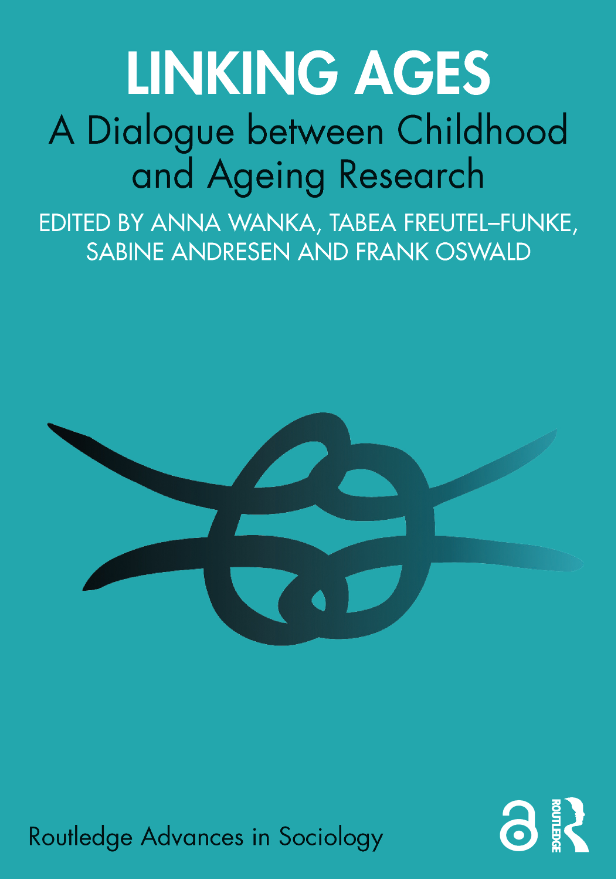I’m sharing here an interview I gave to Stefania Medetti, originally published in February 2021. You can find the original article at the following link: https://www.theagebuster.com/blog/2021/2/3/ditch-the-utilitarian-view
“Dazzled by the dominant neo-classic model, the vast majority of economists cannot conceptualize aging beyond a reductionist collection of problems to be solved“
Job title: Gustavo Sugahara, economist and postdoc researcher at SERAF-UiO and ARA-FoU | Sørlandet Sykehus HF. He is also a lecturer at the Oslo Metropolitan University, and Integrated Researcher at DINAMIA´CET-IUL
The market was held on Thursday in the pedestrian road on the south side of the cathedral. And exactly on Thursdays I used to plan my visits to my university in Trento. There was something exciting in catching the first train in the morning and finding myself at the foot of the Alps four hours later. The city, whose background dates back to the Ancient Romans, maintained intact the charm of its historic stratification paired with a laid back lifestyle that mirrored the flair of its Austrian neighbor. Standing in front of the door of my university, a sturdy but austere three-floor building with pink marble columns that matched harmoniously its mustard color, I could see at one end the sharp rocky hill surrounding the city and, at the opposite side, the entrance to the cathedral. For one of those marvelous intuitions of the Italic genius, the front of the cathedral, framed by the buildings along the road, hid the “truth” about its second façade on the nobler side of the city. My eyes enjoyed the delightful balance of shapes: the onion bell tower of Russian orthodox influence on the left hand side, the arch of the portal surmounted by the imposing rose window in the center and the loggias that rose towards the top in a triangular shape. But walking to the left hand side of the church, a broad square invariably took my breath away with its medieval castle, a baroque fountain, and its series of buildings with arcades. As if by magic, the same tower bell appeared now on the right hand side of a “different” cathedral with its own rose window, and dedicated entrance with a covered porch.
In the pedestrian street connecting the university with the cathedral, a friendly farmer sold her honeys, the highlight of my trips. In those winter months leading to my graduation, the dark golden hue of chestnut honey was the savory leitmotiv of my solitary days of study. Paired with rusk, that wild, mysterious and complex honey with a bitter after-taste, complemented the meandering of my intellectual journey. If my thesis “tasted” of chestnut honey, the macro-economics exam was all about cherries. Not just cherries, but a particular variety of dark, crunchy and juice fruits called “durone.” In Milan that year, the fruit and vegetable shops, with their green tent covering the merchandise exposed in an avalanche of wooden boxes that left a narrow passage to access the shop, were flooded with cherries. The shopkeeper, a middle-age man with a pen balanced on his ear (he needed to write at light speed the sum of a client’s bill on a stack of brown paper bags), grasped gently a handful of fruits with their bright green stems attached. The fruits sat comfortably in a brown bag with “Thank you for your preference – Come again” printed on a side. Crossing my cobblestone street, I carried my precious fruits home where I poured them in a white ceramic bowl full with water. Holding a cherry while biting it in front of the open window, the tips of my fingers turned instantly dark purple and the intense sweet taste with a far hint of sourness sparked the most joyful sensation. As if an interior designer took care of the ensemble, my macro-economics book had a black cover with a series of concentric powder-blue squares that matched the elegance of the cherries’ dark hue. Talking with Gustavo Sugahara, Brazilian economist and postdoc researcher at the University of Oslo, doesn’t just bring these memories back in a day in which these delicacies are far from reach, but casts a light on some ideas at the intersection of aging and economy.
Tell us a bit about yourself, your career, and how you got interested in aging?
My interest in aging is most probably influenced by two family factors: a fantastic grandmother, whose simple existence is a great challenge to ageism, and perhaps more concretely, my mother’s work in psycho-gerontology. I ended-up in a quite different research path than hers, but I guess I inherited the curiosity for this topic.
My research focuses on population aging under a broader demographic change perspective. When introducing myself, I like to challenge my interlocutor by stating that I am the only living economist who does not see aging as a problem. Despite the undeniable fact that increased health challenges are an important aspect of the population aging process, my research highlights the diversity of experiences people face under different contexts. I have paid special attention to the aging process in an urban context.
Why do you define yourself as “the only living economist who does not see aging as a problem?”
The straightforward answer is: pure provocation. I am completely aware of the fact that I am part of a minority, but I am definitely not the only one. I still would like to invite other economists to come forward; it is cold out here.
The main reasons why I don’t see aging as a problem is simply because I consider the possibility of living longer as a conquest. However, if everybody is convinced it is a problem, it might well end up as a problem. Apart from the general acceptance of negative attitudes towards older persons, one of the most perverse effects of ageism relates to the fact that older persons might start playing along, behaving in accordance with a pre-conceived negative stereotype.
Why did you feel the need to stress “living?” Were there other optimistic economists before?
I am not sure if “optimistic” is the right word. But the acknowledgment of the economists of the past refers to economics’ roots in political economy. Economics as it is taught at the vast majority of schools today is not particularly useful to understand population aging. In fact, it contributes to the pervasive acceptance of ageism in our societies.
Most economics graduates will learn “how to think as an economist” right on the first school days. It basically means accepting one specific theoretical framework, the neo-classic model. Roughly speaking, an almost religious believe in an entity called “market,” combined with an ideal archetypal of human behavior, centered on selfishness and a particular kind of rationality, based on the maximization of utility given a specific budget restriction – I admit this is an oversimplification, but those ideas are still very dominant on the average economist’s mindset.
With these ideas in mind, aging is very often poorly conceptualized as a collection of problems to be solved, either by improving markets, such as health, pension, or labor, or by improving individuals’ behaviors. For example, how to help people to make better individual choices such as saving more money, getting the “right education,” etc.
From an economic perspective, the way we look at aging is counterproductive?
I believe the prevailing perspective on aging is still strongly framed by the previously mentioned dominant economic perspective of society in general. In this sense, it is not only the way we look at aging, but also the ways we look at “big topics” such as wealth, poverty and inequality are counterproductive. Even before the Covid-19 pandemic, there were no signs that the world would finally get over the 2008 financial crisis and move on towards a bright and peaceful future of sustainable prosperity.
What is particularly different with regards global aging, is the unprecedented nature of the ongoing demographic change. I use this word a lot in my lectures, hoping it will grab students’ attention: u-n-p-r-e-c-e-d-e-n-t-e-d (never seen, never experienced before).
The vast majority of the world will continue experiencing a series of “first time ever” milestones. Globally, this is the first time in human history that the number of adults aged 65 and over is outnumbering children under the age of five, but in countries like Norway, the 65 and over outnumbering children under the age of five milestone happened during the 1950s and the number of adults aged 65 and over is already outnumbering children and adolescents under the age of 15. Again, for the first time ever!
I have the feeling that we look at these complex issues out of a fearful perspective.
Your reference to “fear” is very interesting and it sounds like a familiar reaction to the “unknown”, particularly when it is framed as a “natural disaster” such as the “old-age tsunami.” Framing is important. If we can only conceptualize aging as a problem, we are more prone to overseeing any positive aspects related to that change and will miss the opportunities that are right in front of us.
Our silos-mentality prevents us from realizing that what is good for an aging population is good for a young population, too. Talking about city planning, intergenerational living, pedestrian area, green spaces are beneficial across the entire age-spectrum
This is one of the main messages of the age-friendly cities movement. Accessibility is the classical example. We must remember that during our life-course we all go through periods of some sort of “dependency.” In this sense, spaces that are accessible to older persons with mobility challenges, are also adapted to everyone who might need it for different reasons, from parents with baby strollers to the injured athlete who recently had a surgery.
However, we must also have in mind that not all interventions are unanimous. Not everything that is supposedly good for an aging population is good for a young population. I remember a case in Oslo where the transportation administration decided to suppress a tram stop in one of the busiest commercial streets in town. The idea was to increase the traffic flow. This decision generated a lot of negative reactions from older people as it made walking distances much longer. In New York, the age-friendly initiative put a lot of emphasis on creating sitting opportunities for pedestrians, and later this initiative collided with a new administration that decided to counter vagrancy and crime by removing benches. This anecdotal episode was dubbed the “war on sitting.”
Another example is the new homes building regulation towards more universally designed environments. Real estate developers perceive this sort of rules as barriers to the market and very often adapted houses are considered as less attractive, therefore with lower market value.
When it comes to the aging demographic and planning, what are the gray areas that we need to address? I feel that one of the limits of factoring aging into our policy decisions is that we look at it from a youth-oriented point of view. What is your take?
From my point of view, the most important thing to address is still the rescue of the idea of the state as a key driver of innovation, in the broad sense. Innovation not only in terms of technology and the production of goods and services, but also in terms of social policy. At the same time, there is no evidence that the global urbanization and aging trends are going to be altered. So urban aging (in its different forms) should also deserve a major focus of public policies.
With regards to population aging and planning in particular, the priority and perhaps most difficult area to address is the rebuilding of intergenerational solidarity ties. This should involve a great effort to curb age segregation in general, but two specific areas are particularly crucial from my point of view: the “re-segmentation” of the life-course and the acknowledgement of the importance of caregiving. This perspective would allow us to acknowledge the social constructs of aging and better understand its relational aspects, not only between individuals but also between people and places.
There are two interesting debates that I believe can help us to grasp the vast array of unexplored possibilities right in front of us: the discussions around grandparenthood and the idea of gerontolescense. The first one refers to the unprecedented situation where more and more children will have the opportunity to know their old-aged grandparents, and even their great-grandparents. The trend is towards an inversion of family composition where we usually had a single grandmother (women live longer) and several grandchildren. Globally, children today are about seven to eight times more likely to have all four grandparents living than was the case in 1900.
The idea of gerontolescense is a direct allusion to adolescence, experienced for the first-time after the Second World War by the “boomers generation”. As the adolescence represents the “transitional period” between childhood and the adult life, the gerontolescense would be the next stage before old age.
How things would change if we adopt a different view on the life course?
I am convinced that the simple acknowledgment of the life course would generate radical changes in the way we organize our societies. This imply the recognition that individuals are not only interdependent, but also, will develop differently in different conditions. Furthermore, it is also crucial to understand that experiences might have life-long and sometimes not immediate, effects.
We are still very constrained today by a life segmentation modelled on the study-work-retire paradigm. This artificial division of the life course in life stages are the results of a “framework” constructed after the Industrial Revolution. It does not have to be like that. What we need to factor into the equation is that, for the first time ever, we have a very different composition of the world population and most of the institutions governing our lives did not evolve to properly incorporate this change.
A concrete example I could give is the sort of innovation we are already witnessing around elderly homes, such as preschools inside nursing homes and co-housing of university students. There are a lot of different forms of unexplored potential to be experimented, from housing and education, to transportation, social participation, etc.
How could a new conceptualization of our society look like?
We don’t necessarily need new stages, but a more flexible model that dedicates more attention to care. For example, the parental leave benefit in Norway allowed me a much greater involvement in my children’s’ first period of life – in comparison to most of my male friends who became parents at a similar period in other parts of the world. In our case it had concrete and I hope positive, long-lasting, implications for all parts involved.
The importance of a continued education is another good example. The general idea is not particularly new, however, we are very far from developing education systems that are truly inclusive to all ages, and the different needs and constrains we might have in different stages of our lives. If we just want people to work longer, we must at least guarantee they will not only have jobs, but also that they can continue to work in safe, healthy and stimulating environments. What we experience now is a system that doesn’t make space for proper life-long learning.
We also need to take caregiving more seriously. Informal caregivers, including older persons themselves – women in particular – are still paying the heaviest price, most of them without any support or recognition for the important work and value they generate to society. I can’t emphasize this enough: apart from the debunking of the “aging is just a collection of problems” perspective, supporting caregivers is the most important task to guarantee the sustainability of healthcare systems in particular, but also general social cohesion.
One of your research is focused on Mozambique. How does aging in Mozambique compare with the West and why did you specifically focus on this country?
Mozambique is still in the initial stages of the famous demographic transition. That means: “lots of births and lots of deaths,” high birth rates and high infant death rates. Half of the population is still 18 years old or younger. However, many Mozambicans are also conquering the possibility to live longer lives. Those who survive the obscenely high rates of child mortality, malaria and HIV, and live long enough to celebrate their 60th birthday, are expected to live another 16 years. The share of the population aged 60 and over is around 6%, about 1.4 million people. This is a contingent already larger than the same group in Norway (1.1 million people), which represents 30% of the total population.
Mozambique used to be labelled the poorest country in the world. The daily life challenges for the vast majority of the population are still enormous. There is no doubt that reducing child mortality and the general attention to newborn and infant healthcare is a priority. However, this population profile is important because it gives us a context: 1.4 million people cannot be ignored even if they represent only 6% of the total population.
In our research, we also found that older Mozambicans are even poorer than the rest of the population. As the vast majority have no access to any kind of social protection, most are not able to retire and will have to work until the day they die. Unfortunately, there are worrying signs that this very incipient longevity conquest is already facing tensions and violence. The reporting of witch hunting cases are becoming more and more common, which I believe is related to the persistent levels of intense poverty and, the disruption of ancestral intergenerational ties. Older persons, mostly the poorest and most vulnerable women, are the main target of this type of crimes that is fueled by greed and the belief in witchcraft.






